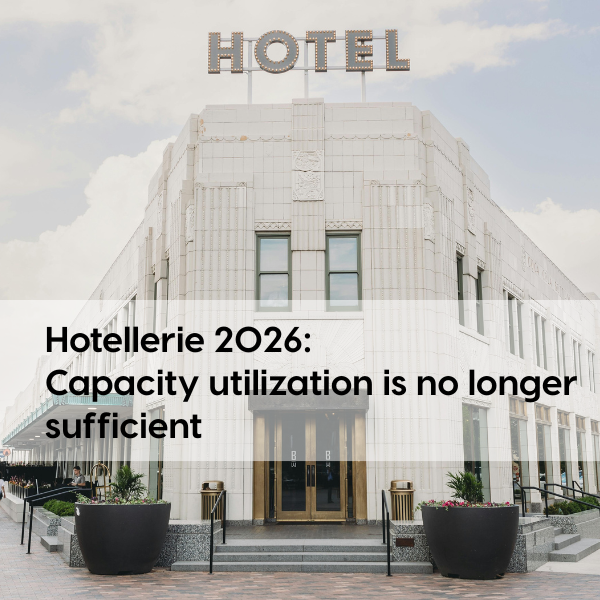Tourismus & Hotellerie
Eat a sustainable breakfast and think economically
How hotels reduce food waste and cut costs
.png)
Hotel breakfast is regarded as an expression of genuine hospitality, but at the same time it is one of the most common places of waste. Large buffets in particular are symbolic of quality, variety and comfort, but many things often remain untouched and end up in the trash. Anyone who carefully structures their breakfast offerings not only saves costs when using goods, but also positions themselves as a responsible, future-oriented company. Recent studies show that sustainability starts with breakfast and pays off.
Food waste in the hotel industry
According to the Federal Ministry of Food and Agriculture (BMEL) were around 10.8 million tons of food disposes of. About 2 million tons (18%) Refer to out-of-home catering — including hotels. Particularly affected: the breakfast buffet.
Less waste and significantly lower costs
A family-run hotel with 30 rooms in southern Germany has introduced a simple but effective system:
At check-in, guests indicate whether and when they would like to have breakfast. Instead of a generous buffet with a large surplus, the hotel offers a reduced, seasonal à la carte menu — with produce from local farmers.
The result after twelve months:
- Up to 40% less food waste
- 6,000—8,000 € lower inventory costs
- More efficient purchasing and warehouse processes
- More positive guest feedback
The basis for this saving is an average use of 4-5 € per breakfast guest. With round 7,000 breakfasts a year Through better planning and demand-based portioning, the company was able to 25% of inventory costs save — without sacrificing quality. In some companies, the decline in food waste is even at 40% or more — a strong signal for greater sustainability.
Studies confirm: Sustainability is economic
According to the international initiative Champions 12.3 Through measures to reduce food waste, businesses in the hospitality sector achieve a average return on investment (ROI) of 7:1. Every euro invested in better planning and communication therefore brings back many times over.
Transparency creates trust
Changes to breakfast offerings should be openly communicated. Guests appreciate comprehensible sustainability measures, as long as they are authentic and credible.
A simple clue like:
“Served fresh instead of wasted:
Our breakfast menu is deliberately reduced to avoid food waste.
Individual wishes? Feel free to talk to us!”
... is often sufficient to Create acceptance and receive positive feedback.
Sustainability as an economic success factor
Whoever designs their breakfast menu responsibly not only reduces costs, but also increases the attractiveness of their own hotel — especially for increasingly environmentally conscious hotel guests. It is not about sacrificing, but about efficient processes and a clear stance.
Digital tools such as Profitize also help hotels to manage the use of goods and purchasing planning more precisely based on current booking figures. This makes it possible to specifically avoid excess quantities, reduce food waste — and at the same time make better use of economic potential.
What you can do
Even small adjustments in the breakfast area can have a big impact — for the environment, guest satisfaction and profitability.
By using food responsibly, you are setting an example — and at the same time strengthening your position as a modern, responsible hotel business.
Your goal: Less waste. More quality. More impact.
Oder kontaktieren Sie uns.
Simply contact us via email. We look forward to hearing and reading from you.
hello@profitize.io

.png)

.png)
.png)
.png)
.png)
.png)
.png)
.png)

.png)
.png)
.png)
.png)
.png)
.png)
.png)
.png)
.png)
.png)

.png)
.png)
.png)
.png)
.png)
.png)
.png)
.png)
.png)


.png)
.png)
%20(600%20x%20400%20px).png)
%20(800%20x%20600%20px).png)

.png)



.png)



